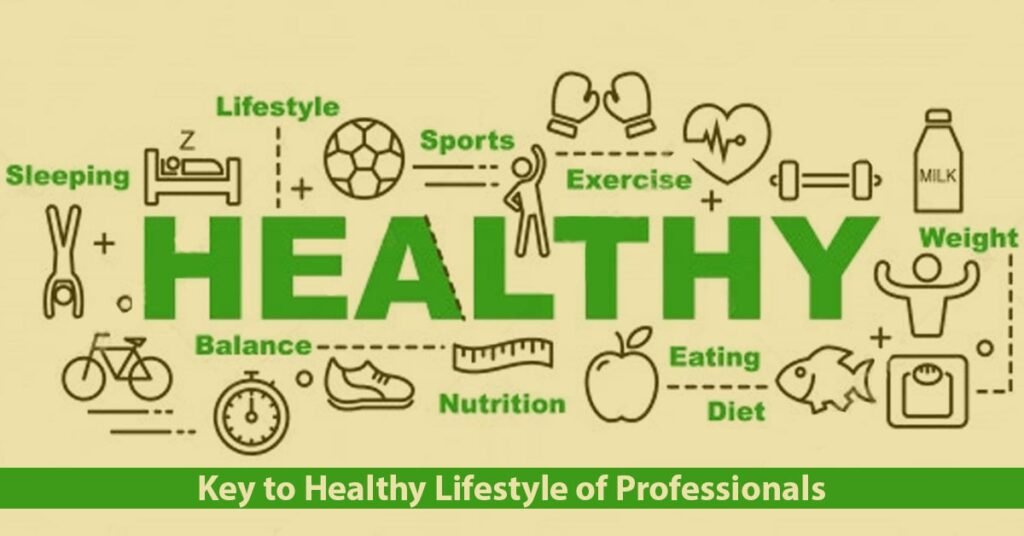Embarking on a journey toward health and wellness requires a clear and personalized roadmap. This step-by-step guide will empower you to assess your current health, set achievable goals, and design a plan that fits your unique lifestyle. By understanding the essential components of wellness, you can take charge of your well-being and create a sustainable path to a healthier, happier life.

Introduction
In our busy and complex world, understanding health and wellness has become increasingly important. Health is more than just not being sick; it refers to a state of complete physical, mental, and social well-being. Wellness goes further by including emotional, spiritual, and occupational aspects of life, creating a fuller picture of what it means to live well.
Maintaining a balanced lifestyle is crucial for improving our quality of life. Good health affects not only how we feel physically but also how we think, act, and interact with others. With the rise of stress, sedentary lifestyles, and unhealthy eating habits, it is vital to recognize the different areas of health and wellness and how they impact our daily lives.
This article will explore the various dimensions of health and wellness, offering insights into essential lifestyle choices that contribute to overall well-being. It will also address common challenges many people face and provide practical strategies to create a personalized health plan. By equipping ourselves with knowledge and simple, actionable steps, we can all work towards a healthier and happier life.
Ultimately, the goal is to encourage readers to take charge of their health and embrace a holistic approach to wellness, fostering a culture of well-being that benefits everyone.

Importance of a Balanced Lifestyle
Living a balanced lifestyle is essential for overall health and happiness. A balanced lifestyle means taking care of different areas of your life, including physical, mental, emotional, and social well-being. When we focus on these areas, we can improve our quality of life and feel more fulfilled.
One of the key benefits of a balanced lifestyle is better physical health. Regular exercise, healthy eating, and sufficient sleep help our bodies function well and reduce the risk of chronic diseases like diabetes and heart disease.
Mental and emotional health are equally important. When we engage in activities that bring us joy, practice mindfulness, and maintain healthy relationships, we can manage stress and improve our mood.
Additionally, a balanced lifestyle encourages personal growth. By setting goals and pursuing hobbies, we feel more motivated and satisfied with our lives.
Finally, a balanced lifestyle helps us build strong connections with others. Spending time with friends and family strengthens our support networks, which is crucial during tough times.
In summary, a balanced lifestyle leads to a healthier body, a happier mind, and stronger relationships, creating a solid foundation for a fulfilling life.
Understanding Health
Health is a multi-dimensional concept that encompasses various aspects of our lives, including physical, mental, and social well-being. Each of these areas plays a crucial role in defining our overall health and quality of life.
Physical Health
Physical health refers to the well-being of the body and its systems. It involves maintaining a healthy lifestyle through regular exercise, balanced nutrition, and adequate rest. Engaging in physical activity, such as aerobic exercises, strength training, and flexibility workouts, helps improve cardiovascular health, build muscle, and enhance overall fitness. A balanced diet, rich in fruits, vegetables, whole grains, and lean proteins, provides essential nutrients that fuel our bodies and support immune function. Additionally, regular health check-ups are vital for preventing and detecting potential health issues early, ensuring we remain in optimal physical condition.
Mental Health
Mental health is equally important and involves our emotional, psychological, and social well-being. It affects how we think, feel, and behave in daily life. Mental health issues, such as anxiety, depression, and stress, can arise from various factors, including genetics, life experiences, and environmental influences. Recognizing the signs of mental health challenges is crucial for seeking help. Strategies to promote mental well-being include practicing mindfulness, engaging in therapy, and maintaining a strong support network of friends and family. Prioritizing self-care activities, such as hobbies, meditation, and relaxation techniques, can significantly enhance mental health and resilience.
Social Health
Social health refers to our ability to form and maintain positive relationships with others. It plays a significant role in our overall health and well-being. Healthy social connections provide emotional support, reduce feelings of loneliness, and enhance our sense of belonging. Engaging with family, friends, and community members fosters social health and helps build a robust support system during challenging times. Effective communication, active listening, and empathy are essential skills for nurturing these relationships.
In conclusion, understanding health requires a holistic approach that considers physical, mental, and social aspects. By prioritizing all these areas, we can achieve a more balanced and fulfilling life, ultimately leading to improved well-being and happiness.

Exploring Wellness
Wellness is a holistic concept that goes beyond mere physical health; it encompasses various dimensions, including emotional, spiritual, and occupational wellness. Understanding and nurturing these aspects can lead to a more balanced and fulfilling life.
Emotional Wellness
Emotional wellness refers to the ability to understand, manage, and express our emotions in a healthy way. It involves recognizing our feelings, coping with stress, and developing resilience in the face of challenges. Practicing emotional wellness helps us build self-awareness, which is crucial for personal growth.
To enhance emotional wellness, individuals can engage in activities such as journaling, which allows for reflection and processing of feelings. Mindfulness and meditation practices also contribute to emotional well-being by promoting relaxation and reducing anxiety. Additionally, seeking support from friends, family, or mental health professionals can be instrumental in navigating difficult emotions and fostering a positive outlook on life.
Spiritual Wellness
Spiritual wellness involves finding purpose and meaning in life, often through personal beliefs and values. It is about connecting with something greater than ourselves, whether through religion, nature, or personal philosophy. Spiritual wellness can provide a sense of inner peace and help individuals cope with life’s challenges.
To nurture spiritual wellness, individuals might explore practices such as meditation, prayer, or spending time in nature. Engaging in community service and acts of kindness can also foster a sense of connection and purpose. By reflecting on personal values and beliefs, individuals can cultivate a deeper understanding of themselves and their place in the world.
Occupational Wellness
Occupational wellness focuses on personal fulfillment and satisfaction derived from one’s work. It involves finding a career that aligns with one’s skills, interests, and values, promoting a sense of purpose and accomplishment. A fulfilling work environment can lead to improved self-esteem and overall well-being.
To achieve occupational wellness, individuals should strive to create a healthy work-life balance. Setting career goals, pursuing professional development opportunities, and seeking meaningful work can enhance job satisfaction. It’s also important to foster positive relationships with colleagues and engage in open communication to create a supportive work environment.
In summary, exploring wellness requires attention to emotional, spiritual, and occupational dimensions. By nurturing these areas, individuals can enhance their overall well-being, leading to a more satisfying and meaningful life.
Lifestyle Choices for Optimal Health
Making informed lifestyle choices is essential for achieving optimal health. Three critical components of a healthy lifestyle are nutrition, physical activity, and sleep. By focusing on these areas, individuals can significantly enhance their overall well-being and quality of life.
Nutrition
Nutrition is the foundation of good health. A balanced diet provides the body with essential nutrients, vitamins, and minerals needed for optimal functioning. To maintain a healthy diet, it’s crucial to include a variety of foods from all food groups: fruits, vegetables, whole grains, lean proteins, and healthy fats.
Eating a rainbow of fruits and vegetables ensures a broad spectrum of nutrients and antioxidants, which help fight inflammation and disease. Portion control is also important; being mindful of portion sizes can prevent overeating and help maintain a healthy weight.
Additionally, staying hydrated by drinking plenty of water is vital for digestion, energy levels, and overall bodily functions. Limiting processed foods, added sugars, and unhealthy fats can further enhance nutritional quality, reducing the risk of chronic diseases such as obesity, diabetes, and heart disease.
Physical Activity
Regular physical activity is another cornerstone of optimal health. Engaging in exercise not only improves physical fitness but also boosts mental well-being. Aim for at least 150 minutes of moderate-intensity aerobic exercise, such as brisk walking, or 75 minutes of vigorous-intensity exercise, such as running, each week.
Strength training exercises, performed at least twice a week, help build muscle mass and improve bone density. Additionally, incorporating flexibility and balance exercises, such as yoga or tai chi, can enhance overall physical function and prevent injuries.
Physical activity releases endorphins, often referred to as “feel-good” hormones, which can reduce stress and anxiety while improving mood.
Sleep
Quality sleep is often overlooked but is essential for overall health. Adults typically require 7-9 hours of sleep per night for optimal functioning. Sleep plays a critical role in physical recovery, cognitive function, and emotional well-being.
To improve sleep quality, individuals should establish a regular sleep schedule, creating a relaxing bedtime routine. Limiting screen time before bed, reducing caffeine intake in the afternoon, and creating a comfortable sleep environment can further enhance sleep quality. In conclusion, making conscious lifestyle choices in nutrition, physical activity, and sleep is vital for achieving optimal health. By prioritizing these areas, individuals can significantly enhance their overall well-being and lead healthier, more fulfilling lives.

Overcoming Challenges to Health and Wellness
Achieving health and wellness can be a challenging journey due to various barriers that individuals face. Understanding these challenges is crucial for developing effective strategies to overcome them. Two significant areas that hinder health and wellness are barriers to healthy living and mental health challenges.
Barriers to Healthy Living
Several barriers can prevent individuals from adopting and maintaining a healthy lifestyle. One common obstacle is a lack of knowledge or awareness about what constitutes a healthy diet and exercise regimen. Many people may not know how to cook nutritious meals or might be unaware of the benefits of physical activity. Education and access to reliable information are vital for overcoming this barrier.
Another significant barrier is time constraints. Busy schedules often leave little room for meal planning, cooking, or regular exercise. Many individuals struggle to balance work, family, and social commitments, leading to unhealthy food choices and sedentary lifestyles. To combat this, individuals can prioritize health by scheduling physical activity like any other important appointment and planning meals in advance.
Financial limitations can also pose a challenge. Healthy foods and gym memberships can sometimes be expensive, making it difficult for some to make healthier choices. However, adopting budget-friendly strategies, such as buying seasonal produce, using coupons, or utilizing free resources like community fitness programs, can help mitigate these financial barriers.
Mental Health Challenges
Mental health challenges significantly impact an individual’s ability to pursue health and wellness goals. Conditions such as anxiety, depression, and stress can lead to unhealthy coping mechanisms, including emotional eating, substance abuse, and lack of motivation to exercise. Recognizing the signs of mental health struggles is essential for seeking help.
Support from friends, family, or mental health professionals can make a significant difference in overcoming these challenges. Therapy, counseling, and support groups can provide the necessary tools to manage mental health issues effectively. Additionally, practicing self-care techniques, such as mindfulness, meditation, and engaging in enjoyable activities, can help alleviate stress and improve emotional well-being.
Building resilience through positive thinking and setting realistic goals can empower individuals to overcome mental health challenges. It’s essential to remember that seeking help is a sign of strength, and prioritizing mental health is crucial for achieving overall wellness.
In conclusion, while various barriers can impede the journey to health and wellness, understanding and addressing these challenges is the first step toward creating a healthier and happier life. By fostering knowledge, support, and resilience, individuals can overcome obstacles and cultivate a sustainable path to wellness.
Creating a Personalized Health and Wellness Plan
A personalized health and wellness plan is essential for achieving long-term health goals and fostering a sustainable lifestyle. This approach acknowledges that every individual has unique needs, preferences, and circumstances that influence their health journey.
Importance of Individualization
Individualization is crucial in health and wellness planning because what works for one person may not work for another. Factors such as age, gender, lifestyle, medical history, and personal preferences all play a role in shaping effective health strategies. A personalized plan enhances motivation and adherence, as individuals are more likely to stick with a program that reflects their specific needs and aligns with their interests. By tailoring a health plan, individuals can set realistic and attainable goals, ultimately leading to more significant, lasting changes.
Steps to Create a Personalized Plan
- Assess Current Health Status: Begin by evaluating your current health through self-assessment or professional guidance. Consider factors such as weight, fitness level, dietary habits, and mental health.
- Set Clear Goals: Establish specific, measurable, achievable, relevant, and time-bound (SMART) goals that align with your health aspirations. For example, aim to lose a specific number of pounds in a set timeframe or incorporate a certain amount of physical activity into your weekly routine.
- Design Your Plan: Create a plan that includes dietary guidelines, exercise routines, and self-care activities. Incorporate foods you enjoy while focusing on nutrient-dense options and choose physical activities that you find enjoyable and sustainable.
- Establish a Support System: Identify friends, family, or professionals who can provide encouragement and accountability. Sharing your goals with others can enhance motivation and help you stay on track.
- Monitor Progress: Regularly review your plan and assess your progress. Keeping a journal or using health-tracking apps can help you stay accountable and recognize areas for improvement.
Encouragement to Stay Flexible
While having a personalized plan is essential, staying flexible is equally important. Life is unpredictable, and circumstances may change, impacting your ability to stick to your plan. Be prepared to adapt your goals and strategies as needed. This flexibility allows for resilience, ensuring that setbacks do not derail your progress.
Incorporate small adjustments instead of viewing changes as failures. Celebrate successes, no matter how small, and maintain a positive mindset. Remember that health is a lifelong journey, and the ability to adapt will contribute to your long-term success.
In conclusion, creating a personalized health and wellness plan tailored to individual needs is vital for achieving optimal health. By understanding the importance of individualization, following structured steps, and remaining flexible, individuals can foster a sustainable approach to wellness that enhances their overall quality of life.

Conclusion
In summary, prioritizing health and wellness is essential for living a balanced and fulfilling life. Understanding the various dimensions of health—physical, mental, social, emotional, spiritual, and occupational—allows individuals to appreciate the interconnectedness of these aspects. By making informed lifestyle choices, such as proper nutrition, regular physical activity, and quality sleep, individuals can significantly enhance their overall well-being.
As you embark on your journey toward better health, remember that small, consistent actions can lead to meaningful changes. Create a personalized health and wellness plan tailored to your unique needs, and stay flexible to adapt as life evolves.
We encourage you to take the first step today—whether it’s planning a nutritious meal, scheduling a workout, or seeking support for mental well-being. Your health is a lifelong journey, and every effort counts.
We would love to hear your thoughts and experiences related to health and wellness. Please feel free to share your feedback, questions, or insights. Together, we can create a supportive community focused on achieving optimal health and well-being for all.
Stay tuned to inspire4ward for more updates.


